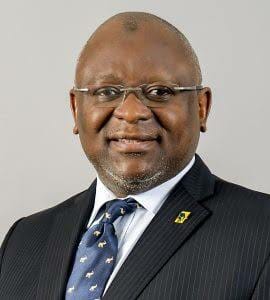Oil price shocks have had a negative impact on the country’s revenue over the years, which is no longer news.
The dwindling revenue from oil was exacerbated by the coronavirus pandemic, so economic managers had to think creatively about how to boost the country’s revenue for growth and development.
The federal government quickly realized that maintaining a strong non-oil export base was no longer an option: it needed to rapidly increase non-oil exports.
Surprisingly, Nigeria’s non-oil exports increased by 14% to N2.07 billion in 2020, up from N1.74 billion in 2019.
According to the Nigerian Export Promotion Council, some of the major non-oil export products include cocoa beans, sesame seeds, cashew nuts, and urea.
Other products include aluminum ingots, finished leather, soya bean meal, cocoa butter, and processed frozen shrimp and crabs.
This demonstrates that, if properly utilized, non-oil exports have the potential to stimulate the growth of the Nigerian economy.
Indeed, the federal government had implemented various agricultural schemes to aid the nation’s diversification efforts.
The Agricultural Credit Scheme Fund (ACGSF), Agricultural Credit Support Scheme (ACSS), Commercial Agric Credit Scheme (CAC), Anchor Borrowers Programme, and the implementation of the N50 billion Export Expansion Facility Programme were among these schemes.
With Nigeria set to sign the African Continental Free Trade Agreement (AfCFTA) on November 11, 2020, it has become critical to strengthen the country’s non-oil exports in order to capitalize on the AfCFTA.
The agreement, which creates a single market for goods and services across 54 countries, allows free movement of business travelers and investments, as well as the formation of a unified customs union to streamline trade on the continent.
According to Dr. Adesola Adeduntan, Chief Executive Officer of FirstBank, AfCFTA is a veritable platform for Nigeria to position itself appropriately as Africa’s export hub.
According to him, the non-oil sector has enormous value and opportunities for the country to increase job and wealth creation, foreign exchange earnings, and GDP growth.
“Given our population, resources, and economic size, this is doable.”
“At FirstBank, we’ve been at the forefront of driving economic growth, and we’ll use our reach and connections to orchestrate growth in non-oil sectors,” he said.
Adeduntan stated that the bank had established an Export Desk to support the needs of exporters, including the development of export products and solutions for pre and post-export financing and services.
Adeduntan stated that the bank would continue to demonstrate its support for the economy’s sustainable revenue drive by developing nimble product and service offerings for export trade services spanning agriculture, structured trade and commodity financing, and treasury.
In accordance with that mandate, First Bank of Nigeria Ltd. recently hosted the first non-oil export webinar.
The theme of the webinar series was “Building Sustainable Non-Oil Export in Nigeria; Harnessing Opportunities within the AfCFTA Treaty & Agro Commodities.”
Participants in the webinar discussed the opportunities that would strengthen the country’s drive to diversify its economy, reducing reliance on oil.
Adeduntan assured the participants that the bank would use its vast experience in assisting trade businesses, particularly Small and Medium Enterprises (SMEs), to support the federal government’s efforts to diversify the economy’s revenue base.
Dr. Biodun Adedipe, Chief Consultant at B. Adedipe Associates Ltd., agreed with Adeduntan that the country needed to shift its focus to export-led growth or import substitution.
Adedipe noted that the world in which Nigeria operated prior to the COVID-19 pandemic was rapidly disappearing, emphasizing the importance of focusing more attention on the country’s non-oil export industry.
According to him, there is a need to build supporting infrastructure to aid export business, similar to what China is doing to boost economic growth.
He went on to say that aggressive goals should be set and stringent measures implemented.
“Other countries will act on us if Nigeria does not act,” Adedipe said.
According to Dr. Ezra Yakusak, Chief Executive Officer of the Nigerian Export Promotion Council (NEPC), the zero oil plan was developed in 2016 as a strategy to shore up foreign exchange through the non-oil sector.
Yakusak went on to say that, in response to the 2016 recession, the Zero Oil Plan was developed, leveraging AfCFTA, in order to prepare for a world in which crude oil is less relevant.
He stated that the Zero Oil Plan was a strategy to increase foreign exchange through the non-oil sector by implementing export policies for 22 major products that could generate up to $30 billion in foreign exchange per year.
As part of the One State One Product (OSOP) scheme, he added, the plan entailed the start of export projects and investment tracking in each state of the federation.
Yakusak, represented by Mr Folorunsho Akintunde, Deputy Director, NEPC, stated that through the plan, an export policy for 22 major products worth $30 billion was developed.
The council, he claims, is preparing and positioning SMEs for AfCFTA through a variety of trainings, programs, and incentives.
He stated that the NEPC was collaborating closely with Afrexim Bank and ITC to ensure that Nigeria was prepared for AfCFTA, particularly with regard to the Export Trading Company.
Comptroller Malanta Yusuf, Custom Area Controller, Apapa, also advised exporters to familiarize themselves with items that can be exported and those that cannot.
He also advised them on clear product descriptions and proper packaging to facilitate product acceptance.
Mr Eric Intong, Regional Chief Operating Officer, Anglophone West Africa, Afreximbank, also spoke, stating that the bank developed a variety of products, programs, and initiatives to boost intra-African trade.
Intong stated that the bank would spend $40 billion in intra-Africa trade and investment financing over the next five years to support AfCFTA, which is double the amount spent for the same purpose over the previous four years.
Initiatives like FirstBank’s webinar series, as well as massive private-sector support, are expected to increase stakeholders’ interest in non-oil exports and create new revenue streams for Nigerians’ overall well-being.
